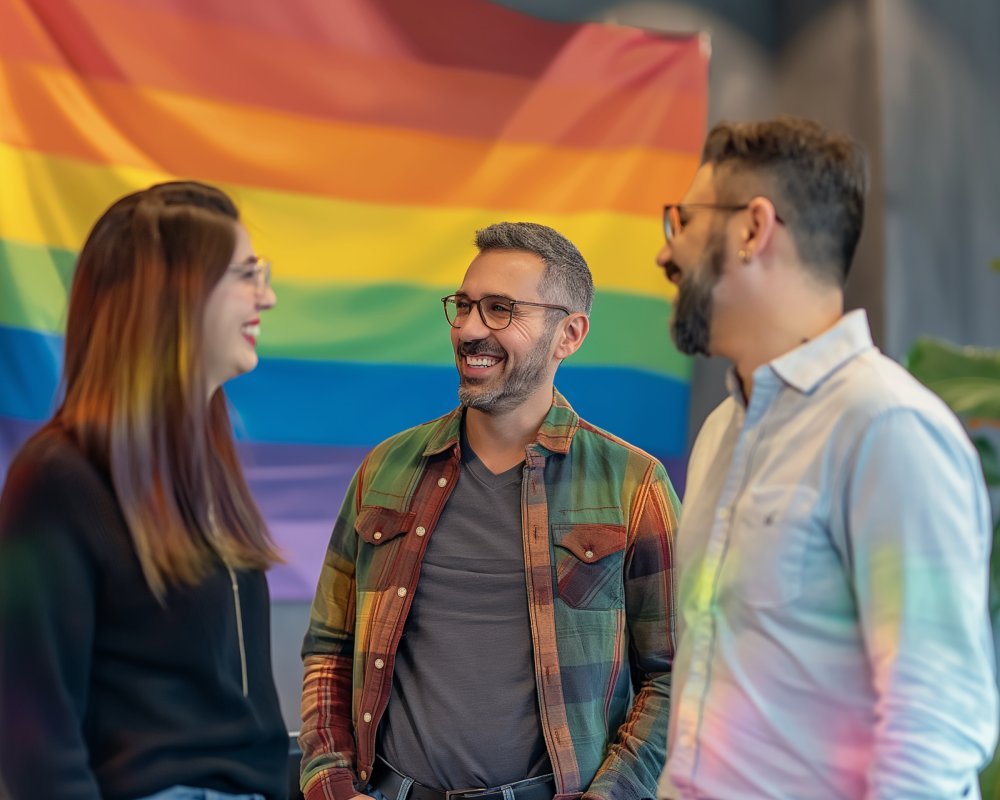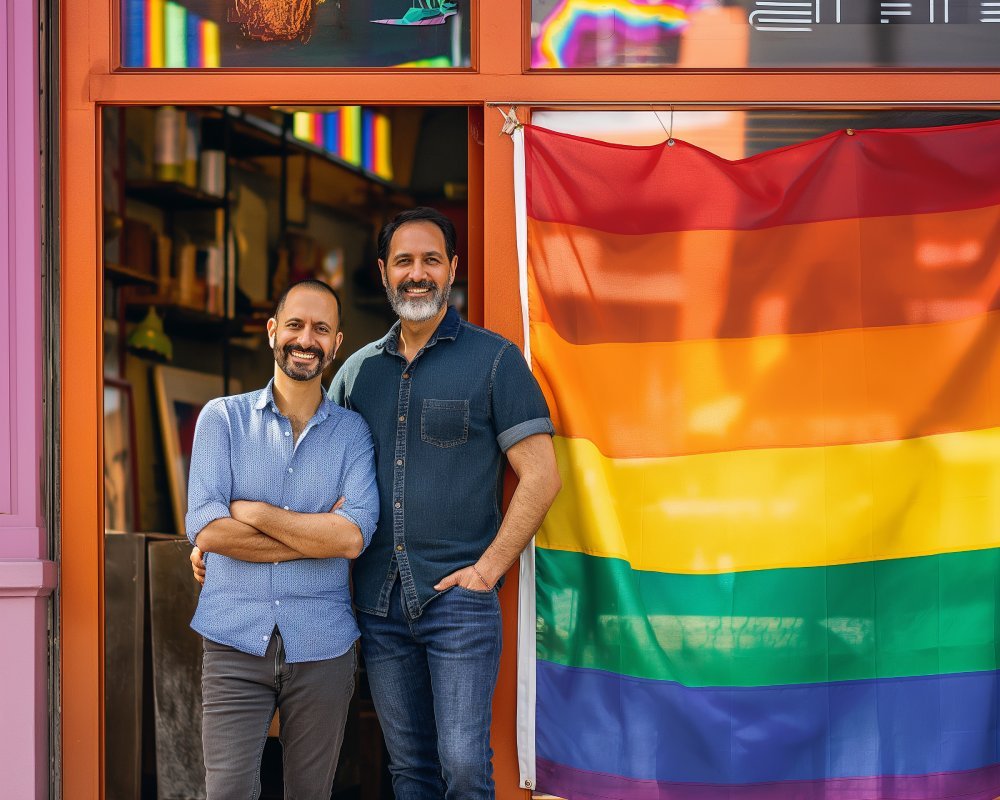
The Influence of Gay Writers on Modern Literature – Gay writers have played a significant role in shaping modern literature, breaking barriers, and challenging societal norms. Through their unique perspectives and experiences, these writers have brought LGBTQ stories to the forefront, shedding light on the struggles, triumphs, and complexities of queer life. The Influence of Gay Writers on Modern Literature extends far beyond just representation; it has reshaped the literary landscape, paving the way for more diverse and inclusive narratives to be told. In this blog, we will explore the impact of gay writers on modern literature, delving into some of the key figures who have left an indelible mark on the literary world.
The Beginnings of LGBTQ Literature
In the not-so-distant past, LGBTQ voices were often marginalized or silenced in mainstream literature. However, the emergence of gay writers in the 20th century brought about a revolution in storytelling. Authors like Oscar Wilde, Virginia Woolf, and James Baldwin began to explore themes of sexuality and identity in their works, laying the foundation for a new wave of LGBTQ literature. These writers courageously navigated the complexities of being queer in a society that often shunned or misunderstood their experiences, paving the way for future generations of authors to express themselves openly and authentically.
Oscar Wilde: A Trailblazer in LGBTQ Literature
One of the most influential gay writers of the 19th century, Oscar Wilde challenged societal conventions with his provocative and witty works. His classic novel, “The Picture of Dorian Gray,” delves into themes of vanity, morality, and the pursuit of beauty, while also exploring the complexities of desire and love. Wilde’s unapologetic embrace of his sexuality and his refusal to conform to societal norms made him a revolutionary figure in LGBTQ literature, inspiring generations of writers to follow in his footsteps.

The Influence of Gay Writers on Modern Literature
As we move into the 21st century, LGBTQ literature continues to thrive, thanks in large part to the contributions of contemporary gay writers. Authors like Michael Cunningham, Sarah Waters, and Armistead Maupin have garnered critical acclaim for their poignant and authentic portrayals of queer life. Their works explore a wide range of themes, from love and relationships to identity and belonging, showcasing the diversity and complexity of LGBTQ experiences.
Michael Cunningham: Capturing the Essence of Queer Identity
Michael Cunningham’s Pulitzer Prize-winning novel, “The Hours,” is a modern masterpiece that weaves together the lives of three women across different time periods, each grappling with their own struggles and desires. Through his lyrical prose and deeply empathetic characters, Cunningham captures the essence of queer identity with nuance and grace. His exploration of love, loss, and longing resonates with readers of all backgrounds, offering a window into the universal experience of searching for connection and meaning in a world that can be both beautiful and cruel.
Sarah Waters: Redefining Historical Fiction
Sarah Waters is known for her innovative blending of historical fiction and LGBTQ themes, creating rich and immersive narratives that challenge conventional ideas of gender and sexuality. Her novel, “Tipping the Velvet,” follows the journey of a young woman discovering her queer identity in Victorian England, while also exploring themes of class, power, and desire. Waters’ meticulous attention to detail and vibrant storytelling have earned her a loyal following and critical acclaim, solidifying her place as a trailblazer in LGBTQ literature.
Advertisement · Scroll to continue
Recommended
The Impact of Representation in LGBTQ Literature
One of the most powerful aspects of LGBTQ literature is its ability to provide representation and visibility to marginalized communities. By telling queer stories and centering LGBTQ experiences, gay writers have helped to foster a sense of community and connection among readers who may feel isolated or unseen. The Influence of Gay Writers on Modern Literature in this regard cannot be overstated; their works have served as a lifeline for many LGBTQ individuals, offering validation, hope, and a sense of belonging in a world that can often be hostile to their identities.
Armistead Maupin: Chronicling LGBTQ Life in San Francisco
Armistead Maupin’s iconic “Tales of the City” series is a beloved and groundbreaking work that chronicles the lives of a diverse group of LGBTQ characters living in San Francisco in the 1970s and 80s. Through his warm and witty storytelling, Maupin captures the spirit of queer community and resilience, showcasing the strength and resilience of LGBTQ individuals in the face of adversity. His work has had a lasting impact on the LGBTQ community, providing a glimpse into a world that is at once familiar and fantastical, where queer voices are celebrated and cherished.

The Future of LGBTQ Literature
As we look to the future, it is clear that LGBTQ literature will continue to evolve and expand, encompassing a wider range of voices and experiences. The Influence of Gay Writers on Modern Literature has paved the way for greater diversity and representation in the literary world, creating space for queer stories to be told and heard. By amplifying LGBTQ voices and experiences, we can build a more inclusive and equitable society where all individuals feel seen, heard, and valued. Gay writers have played a pivotal role in this ongoing journey toward greater acceptance and understanding, and their contributions will continue to shape the literary landscape for generations to come.
In conclusion, the Influence of Gay Writers on Modern Literature is undeniable, reshaping the literary canon and opening up new possibilities for storytelling and representation. By centering LGBTQ experiences and voices, gay writers have challenged systemic biases and prejudices, creating a more inclusive and diverse literary landscape. The works of queer authors have touched the hearts and minds of readers around the world, offering solace, insight, and hope in a world that can often be hostile to difference. As we continue to celebrate and uplift LGBTQ voices in literature, we move closer toward a more just and equitable society where all stories are valued and all identities are embraced.
Advertisement · Scroll to continue

More Recommended
Embracing Diversity: The Rise of Gay-Friendly Businesses in Marketing
Embracing Diversity: The Rise of Gay-Friendly Businesses in Marketing In today’s ever-evolving business landscape, companies [...]
We Need LGBTQ+ Urbanism
We Need LGBTQ+ Urbanism: Redefining Cities for Inclusivity Cities are the lifeblood of modern society, [...]
How to show support for LGBTQ?
How to show support for LGBTQ? – Certainly! Below is a formatted blog post that [...]
Is affirmative action the same as DEI?
Is affirmative action the same as DEI? – In the quest to foster more inclusive [...]
How to Navigate the Gay Scene as an Introvert
How to Navigate the Gay Scene as an Introvert – Navigating the gay scene as [...]
Exploring the Role of Gay Leaders in Social Movements
Exploring the Role of Gay Leaders in Social Movements – Leadership plays a crucial role [...]
Gay Rights Movement: What Is Gay Activism?
Gay Rights Movement: What Is Gay Activism? A Comprehensive Exploration of LGBTQ+ Movements, History, and [...]
40 Funny Jokes About Gays
40 Funny Jokes About Gays – Humor brings joy, connects us, and helps us embrace [...]
What is a powerful quote about gender equality? Top 12 Quotes
What is a powerful quote about gender equality? Top 12 Quotes – Certainly! Here is [...]